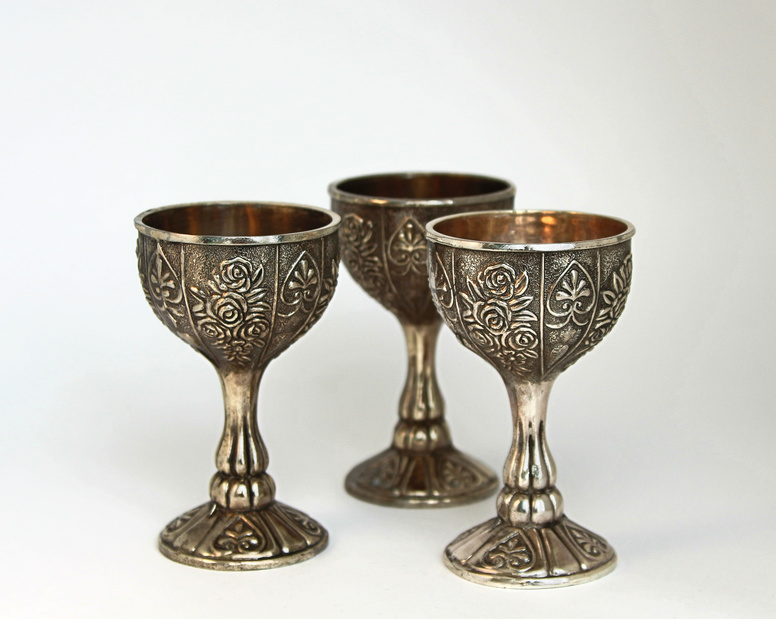 There are few things more beautiful than antique sterling silver pieces. But if you're considering selling an antique silver piece from your collection, it's important that you determine whether it's pure sterling or if it's been plated with silver.
There are few things more beautiful than antique sterling silver pieces. But if you're considering selling an antique silver piece from your collection, it's important that you determine whether it's pure sterling or if it's been plated with silver.
Are you ready to learn a few expert tips on differentiating between real sterling and silver plating? Keep reading for a quick education.
Why is telling the difference important?
Before we get into how to tell the difference between sterling silver and imitations, it's necessary to discuss why this is important. While sterling silver is not as expensive as other precious metals like gold, imitations can be found all over the place. Silver plated pieces are typically the most common source for this. And while silver plating looks passable as real sterling silver, it deteriorates much more quickly. This is due to a very small amount of actual silver content. As such, buying or selling a silver plated piece could be an issue if you're looking for true antique silver. It's especially an issue if you're paying a pretty penny for it without knowing it's simply plating..
How can I tell the difference?
Fortunately, there are a number of tests you can run to see whether the item you're interested in buying or selling is truly antique sterling or not. While polished silver reflects 95% of the visible light spectrum, the following tests may be a bit more useful in your determination:
- Magnetic Testing - True silver is not magnetic. So if you hold a magnet up to the piece you're examining and it's attracted to it, you're likely looking at a silver overlay. Either that or it's been made with less than 92.5% silver.
- Weight Testing - If you own an antique silver item of similar size, compare its weight to that of the piece you're testing. If they weigh about the same, it's likely that you're working with real silver.
- 925 Silver Testing - This is the simplest way to identify true sterling silver. A 925 imprint means the piece is composed of 92.5% pure silver. In that case, you're dealing with the genuine article.
Whether you're dealing with a sterling trophy or a silver tea set, understanding your metals can make all the difference when it comes to silver. Are you prepared to put your antique sterling to the test?

 "Everything old is new again" could be the unofficial mantra of antique collectors and sellers. After all, antique store revenue represents 13% of all U.S. resale industry revenue, a sector that brings in an estimated $17.5 billion every year. But if you're looking to add to your growing collection or to unload some historic pieces, how can you be sure you're paying or fetching a fair price? In today's post, we'll provide a few tips for when you want to sell or buy antiques. Follow these tips and you'll be able to sell your valuables or accumulate some older pieces like a pro.
"Everything old is new again" could be the unofficial mantra of antique collectors and sellers. After all, antique store revenue represents 13% of all U.S. resale industry revenue, a sector that brings in an estimated $17.5 billion every year. But if you're looking to add to your growing collection or to unload some historic pieces, how can you be sure you're paying or fetching a fair price? In today's post, we'll provide a few tips for when you want to sell or buy antiques. Follow these tips and you'll be able to sell your valuables or accumulate some older pieces like a pro. According to the Royal Society of Chemistry, we can trace the beginning of silver mining back to ancient Greece and Turkey, in 3000 B.C. Eventually, silver became highly valued all over the world. In fact, in at least 14 languages, the terms for "money" and "silver" are identical.
According to the Royal Society of Chemistry, we can trace the beginning of silver mining back to ancient Greece and Turkey, in 3000 B.C. Eventually, silver became highly valued all over the world. In fact, in at least 14 languages, the terms for "money" and "silver" are identical. Unless you're completely devoted to minimalism, you probably have lots of different collections in your home. You might have an impressive array of shoes or love the work of a certain artist. You might also fawn over old books or buy antique jewelry whenever you see it at a local shop or yard sale. We all have different items to which we're drawn (and are often unable to resist). But for many of us, antiques win out over all other collectibles. In today's post, we'll discuss a few reasons as to why this might be -- and why you might want to consider selling your own antiques if they aren't bringing you joy.
Unless you're completely devoted to minimalism, you probably have lots of different collections in your home. You might have an impressive array of shoes or love the work of a certain artist. You might also fawn over old books or buy antique jewelry whenever you see it at a local shop or yard sale. We all have different items to which we're drawn (and are often unable to resist). But for many of us, antiques win out over all other collectibles. In today's post, we'll discuss a few reasons as to why this might be -- and why you might want to consider selling your own antiques if they aren't bringing you joy.